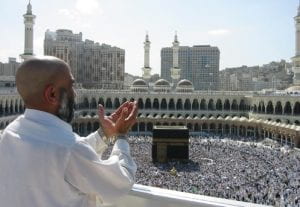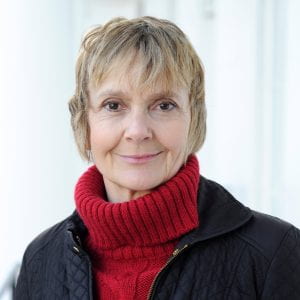We speak to Abby Day, Professor of Race, Faith and Culture at Goldsmiths, about the new BA in Religion
Could you tell us a little bit about yourself and your background?
Originally from Canada, I now live in Lewisham in London. My research and teaching explores what religion means today in diverse societies. I also advise government, media and education. I’ve been focusing in my work on shifting the study of religion from ‘Theology and Religious Studies’ to social science, where I think it belongs.
Please can you give us a quick overview of the BA in Religion?
 The programme is taught by the departments of Sociology, Anthropology, Politics & International Relations and Media & Communications. We consider the nature of individual religions – and non-religion – but we also explore what religions have in common and what they do in practice in society. The programme is important, because in an increasingly globalised, more religious world, we need to understand religion as one of the most important social forces shaping contemporary society. What fuels religious conflicts? What is an appropriate response? How does religion help or sometimes harm individuals and wider society? We think our students can make a real difference in a world that is rapidly changing and, in many cases, becoming more religious, neoliberal and conservative. Class sizes are small: students learn through weekly lectures, smaller seminars, a fortnightly workshop and individual tutorials. The fortnightly two-hour workshop is an opportunity for students to discuss in more detail the theories and case studies presented in the lectures. We will map the key debates and the impact through and on religion. There will also be field trips to, for example, places of worship and of politics (House of Commons/Lords) to see both small-scale religious practice and the intersection with the wider public sphere.
The programme is taught by the departments of Sociology, Anthropology, Politics & International Relations and Media & Communications. We consider the nature of individual religions – and non-religion – but we also explore what religions have in common and what they do in practice in society. The programme is important, because in an increasingly globalised, more religious world, we need to understand religion as one of the most important social forces shaping contemporary society. What fuels religious conflicts? What is an appropriate response? How does religion help or sometimes harm individuals and wider society? We think our students can make a real difference in a world that is rapidly changing and, in many cases, becoming more religious, neoliberal and conservative. Class sizes are small: students learn through weekly lectures, smaller seminars, a fortnightly workshop and individual tutorials. The fortnightly two-hour workshop is an opportunity for students to discuss in more detail the theories and case studies presented in the lectures. We will map the key debates and the impact through and on religion. There will also be field trips to, for example, places of worship and of politics (House of Commons/Lords) to see both small-scale religious practice and the intersection with the wider public sphere.
What makes the Goldsmiths course distinctive?
This is the only BA Religion in the country that is located in a Sociology department and taught in the specialised departments of Sociology, Anthropology, Politics & International Relations and Media & Communications. That means the students will learn more about the societal impact and drivers that shape and are shaped by religion. The making of the modern world, politics of other cultures, sociology of religion, anthropology of religion, philosophy, paranormal experiences, popular culture – these are the main interdisciplinary themes that shape the BA. Students are encouraged to develop work placement opportunities and carry out independent research on real-world issues.
What are you looking for in an applicant? Do you have any tips for a great personal statement?
At Goldsmiths, we always look for candidates unafraid to think for themselves, to critique the work of even the most well-established scholars, and to engage with other students in our vibrant, diverse community. Good marks are an important indicator of an applicant’s ability to carry out study in higher education, but so, too, is the personal statement. My main advice is to be specific: say what you find most interesting and challenging, what books or ideas have inspired you, and why you think Goldsmiths is a perfect match for you. It’s the spark of independent thinking that really excites us.
How does this degree support students practically for life after university?

Abby Day
As a social science degree, students develop the skills of analysis, critical thinking, research, independent working, writing and communication that are vital for any job. This degree explores critically the relationships between religion and other aspects of society as diverse as culture, communication, politics, economy, nation, education, gender, law and ethnicities. These situations raise difficult and urgent questions that demand sophisticated analysis, informed by both classical theories and contemporary research. It will give you the knowledge and expertise urgently needed in international relations, local government, NGOs, charities, politics, media, corporate social responsibility, education and the arts.
And finally… tell us a joke!
I know a great knock-knock joke!
OK – tell me.
You start.
OK – knock-knock
Who’s there?
To find out more about the BA Religion course, visit gold.ac.uk/ug/ba-religion